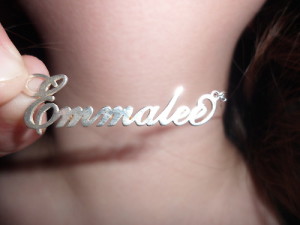What’s your name? Though historically the answer to that question was a sequence of sounds (or gestures, in the case of sign language), as of recent centuries it can just as easily be a sequence of letters. When I tell you here that my name is Tim, pronunciation has nothing to do with how I’m identifying myself here—only the letters T, I and M. Of course, I don’t think of my name as solely its pronunciation or solely its spelling; my name is a combination of both.
An interesting outgrowth of this is that there are some name pronunciations that have two or more corresponding spellings. “Is that Kate with a K, or Cate with a C?” someone might ask. Or, “Steve, is your full name with a V or a PH?” On some level we consider Stephen and Steven to be the same—but they’re not exactly equivalent. They’re different names.

How did this come about? Let’s take a closer look.
I see two major groups into which we can divide names with alternate spellings: Those that indicate ancestry or in-group status (identify), and those that seek to differentiate.
Consider the name Hugh. If you meet someone named Hugh, you wouldn’t be able to draw any conclusions on his ancestry simply based on his name, but that wouldn’t be the case if he actually spelled it Huw. Though the two names are pronounced the same, Huw is likely to be of Welsh descent (or have otherwise Cymrophilic parentage).
Another place we see these sorts of spellings is in the African American community. An online discussion mentions LeRoi, Jeighcob, Brookelynne, Makaylah, Rhyleigh and many others as names the participants have come across. These, of course, are all alternative spellings of otherwise common names. (We should take a moment to marvel at these spelling alterations; they demonstrate acute knowledge of English spelling patterns in that we can read them easily.) We could conjecture that black parents might choose to name their child with a nonstandard spelling to concretize in-group identity; these types of names tend to be unique to AAVE speakers.
It should be noted that these types of names are only a subset of a rich tradition of black names, many of which are invented altogether. This tendency was satirized in a 2012 Key and Peele video. There’s also been an interesting Reddit conversation on the topic.
The second group of names with alternate spellings don’t suggest heritage or group identity in any way; they simply differentiate. Examples of these are pairs like Sarah/Sara and Brian/Bryan.
We all encounter names like these on a daily basis, and they’ve made their way into pop culture: We get songs like Ben Folds’ “Zak and Sara,” in which we hear:
While Zak without a C tried out some new guitars
Playing Sara with no H’s favorite song
Another example that comes to mind is the character Jam’ie from the Australian mockumentary Summer Heights High. “My name is Ja’mie,” she says, introducing herself: “J, A, apostrophe, M, I, E. Weird name, I know, but you’ll get used to it.” You’d certainly get a mouthful if you accidentally called her Jamie. (Granted, Ja’mie is not pronounced like Jamie, so it may fit better into the “invented altogether” category of names, though it’s clearly satirical.)
Where do these types of names come from? They seem to be a way to differentiate. This seems obvious, but it’s actually a bit strange if you think about it: It would seem that names originally came about as a way to identify things—to say what something is. But these alternate spellings instead emphasize what this person is not. “Sara” might be somewhat like a Sarah, but she is most decidedly not a Sarah.
An interesting consideration is that we don’t name ourselves; our names come from our parents. Alternatively spelled names, then, may be parents’ attempts to give their child a certain quality of differentiation. A badge that says, “My child is unique.” Could it be, then, more about the parent wanting to differentiate themselves, rather than the child?

